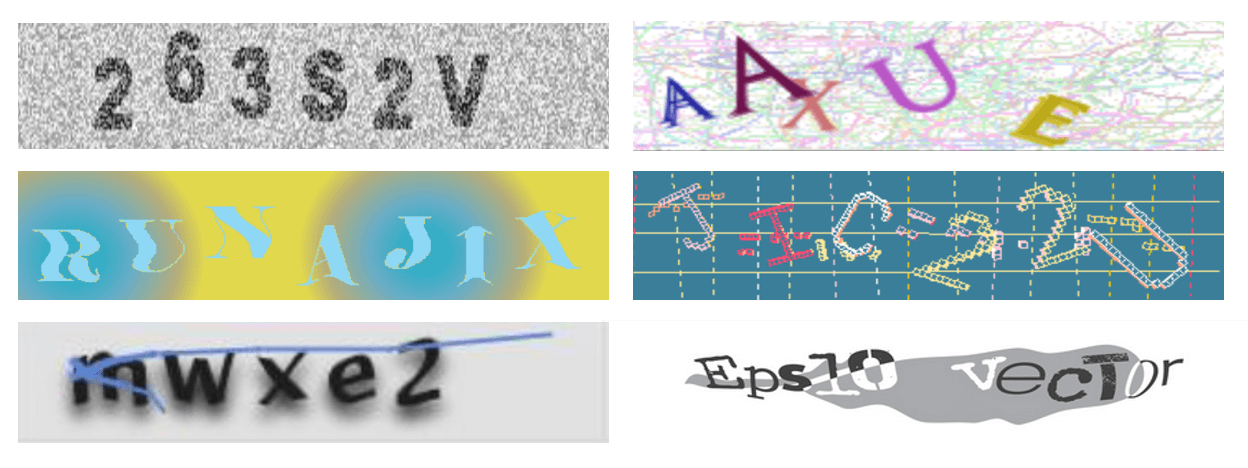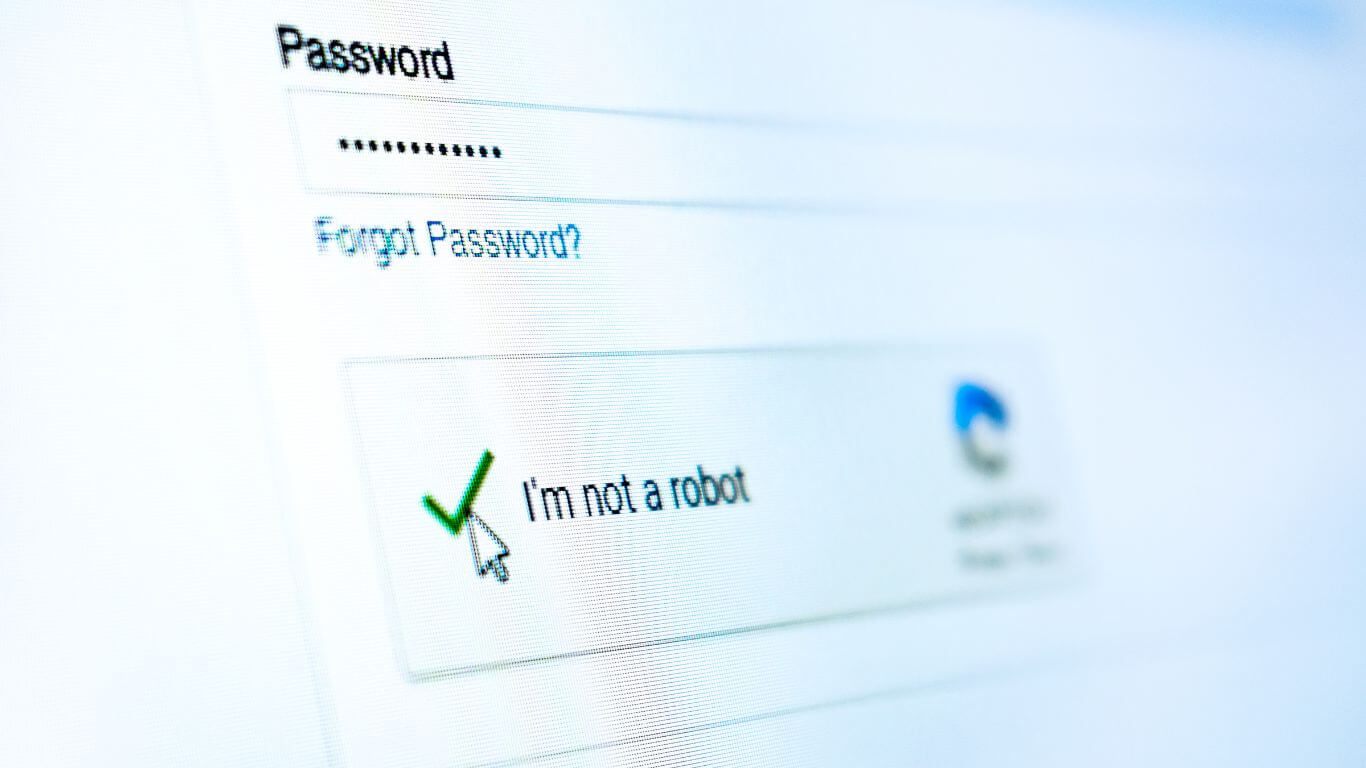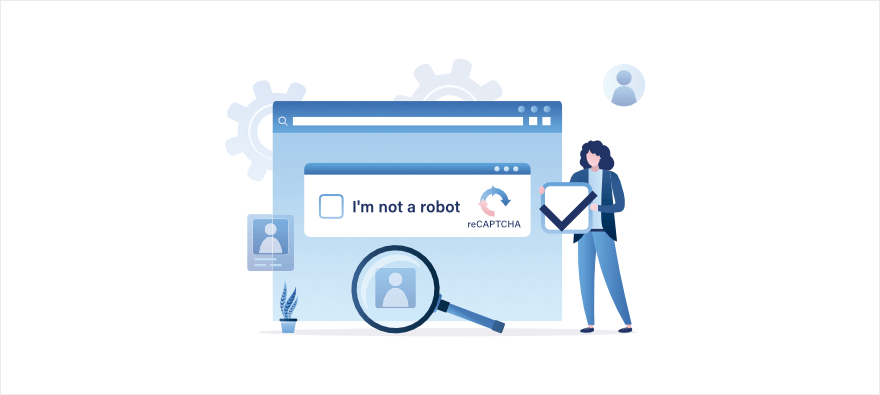With the rapid advancement of technology, online security has become a major concern for individuals and businesses alike. As we continue to rely on the internet for various activities such as online shopping, banking, and communication, it has become increasingly crucial to protect our sensitive information from cyber threats. This is where Captcha comes into play.
Captcha (Completely Automated Public Turing test to tell Computers and Humans Apart) is a security measure used to distinguish between human users and automated bots. It requires users to complete a simple task, such as selecting images or typing distorted text, in order to verify their identity and access a website or service. In this article, we will delve into the evolution of Captcha and its importance in keeping our online activities safe.
The History of Captcha
The Origins of Captcha
The concept of Captcha was first introduced by Alan Turing in his paper “Computing Machinery and Intelligence” in 1950. He proposed a test, known as the Turing test, to determine the intelligence of a machine by its ability to convince a human that it is also human. This concept was later adapted by researchers at Carnegie Mellon University in 1997, who coined the term “captcha” and used it as an acronym for “Completely Automated Public Turing test to tell Computers and Humans Apart.”

The idea of Captcha was initially introduced by Alan Turing in his 1950 paper titled “Computing Machinery and Intelligence
Initially, Captcha was used as a simple method to distinguish between humans and bots in order to prevent spam and automated attacks on websites. The first version of Captcha, developed by Luis von Ahn, Manuel Blum, and Nicholas J. Hopper, involved displaying a word or phrase in an image with distorted or overlapping characters that could be easily read by humans but difficult for machines to decipher.
The Birth of Modern Captcha
As internet usage grew and became more sophisticated, bots evolved to bypass the early versions of Captcha. This led to the development of more advanced forms of Captcha, such as audio-based and text-based challenges, that were harder for bots to crack. In 2007, Google introduced reCaptcha, which used scanned books and documents to digitize text that needed to be verified by users. This not only improved the security of Captcha but also helped with the digitization of old texts.
In 2014, Google released a new version of reCaptcha called “No Captcha reCaptcha,” which requires users to simply check a box to prove their humanity. This was a significant improvement in user experience as it eliminated the need for typing or clicking on images, making it easier and quicker to complete the verification process.
The Evolution of Captcha
With advancements in technology, hackers have found ways to bypass traditional Captcha methods, leading to the development of more complex and secure versions. One such example is “Invisible reCaptcha” introduced by Google in 2016, which uses machine learning algorithms to analyze user behavior and determine if they are human or not.
In 2018, Google launched reCaptcha v3, which uses a risk analysis system to evaluate the behavior of users on a website rather than presenting them with a challenge. This means that legitimate users can access a site without any interruption while bots or suspicious activities are flagged and blocked.
The evolution of Captcha has come a long way since its inception and continues to improve in order to keep up with the constantly evolving landscape of online security threats.
How Captcha Works
Types of Captcha
There are several types of Captcha currently in use, with each serving a different purpose and level of security. Some common types of Captcha include:
- Image-based: This is the most traditional form of Captcha where users are required to select images that fulfill a certain criteria, such as identifying all the images containing a specific object.
- Audio-based: This type of Captcha involves playing an audio clip with a series of numbers or letters that the user must correctly enter to verify their identity.
- Text-based: As the name suggests, this Captcha requires users to read and type out a distorted text or sequence of characters in order to prove they are human.
- No Captcha: The latest version of reCaptcha, where users only need to check a box to verify their identity without any additional tasks.
Advantages of Captcha
The primary advantage of using Captcha is its ability to prevent automated programs from accessing websites or services. This reduces the chances of spam, brute force attacks, and other malicious activities that can compromise the security of a website or its users.

The main benefit of employing Captcha is its capability to stop automated programs from gaining access to websites or services
Another advantage of Captcha is its simplicity. The tasks presented to users in order to verify their identity are relatively easy and can be completed quickly. This ensures a smooth user experience while maintaining the desired level of security.
Furthermore, Captcha is constantly evolving and improving to keep up with the latest security threats, making it a reliable and effective method of protecting online activities.
Limitations of Captcha
While Captcha has proven to be an effective security measure, it does have its limitations. One of the main concerns is accessibility for users with disabilities. The distorted text or audio clips used in Captcha may be difficult for individuals with visual or hearing impairments to complete, thus hindering their access to certain websites or services.
Moreover, Captcha can also be frustrating for legitimate users, especially when they encounter a particularly difficult challenge or if they have to repeatedly complete the verification process due to technical issues. This can lead to a negative user experience and frustration among users.
Another limitation is the possibility of bots or hackers finding ways to bypass Captcha, rendering it ineffective. As technology continues to evolve, so do the methods used by malicious actors, making it a constant battle to stay ahead in terms of security.
The Role of Captcha in Online Security
Protection Against Automated Programs
One of the primary purposes of Captcha is to prevent automated programs, also known as bots, from accessing websites or services. Bots are commonly used by hackers and spammers to perform tasks such as creating fake accounts, generating traffic, and sending spam messages or comments.
By requiring users to complete a task that only humans can perform, Captcha ensures that only legitimate users are granted access, thus reducing the risk of bots compromising the security of a website or its users.
Prevention of Spam and Brute Force Attacks
Spamming and brute force attacks are common online threats that can be prevented with the use of Captcha. Spammers often use bots to post irrelevant or malicious content on forums, comment sections, and social media platforms, causing inconvenience to users and potentially damaging the reputation of a website.
Similarly, brute force attacks involve repeatedly trying different combinations of usernames and passwords to gain unauthorized access to a website. With the use of Captcha, these attacks can be thwarted as bots are unable to complete the verification process, and legitimate users can securely access their accounts.
Safeguarding Sensitive Information
Captcha plays an important role in safeguarding sensitive information such as login credentials, credit card details, and personal information. By preventing bots from accessing websites, it reduces the risk of data breaches and identity theft, ensuring the safety and privacy of users.
Moreover, Captcha also provides an additional layer of security when used in conjunction with other security measures, such as two-factor authentication or secure sockets layer (SSL) certificates, further protecting sensitive information from falling into the wrong hands.
Criticisms and Controversies Surrounding Captcha
Despite its benefits, Captcha has faced criticism and controversies, mainly regarding its accessibility, impact on user experience, and alternatives.
Accessibility Issues
As mentioned earlier, Captcha presents difficulties for individuals with disabilities, particularly those with visual or hearing impairments. The distorted text or audio clips used in traditional Captcha methods may not be accessible to them, thus preventing them from accessing certain websites or services.
Furthermore, even the latest version of reCaptcha, which requires users to click a box, may not be easily accessible for individuals with motor impairments, making it difficult for them to complete the verification process.
Impact on User Experience
The primary purpose of Captcha is to provide an additional layer of security, but this often comes at the cost of user experience. Studies have shown that users tend to abandon tasks or websites if they encounter a particularly challenging or time-consuming Captcha. This can lead to a loss of potential customers and revenue for businesses.

Research indicates that users are likely to give up on tasks or websites when faced with a particularly difficult or time-consuming Captcha
Moreover, the frustrating experience of repeatedly completing Captcha due to technical issues or failed attempts can also discourage users from using a website or service, ultimately impacting their satisfaction and loyalty.
Alternatives to Captcha
With the rise of concerns regarding accessibility and user experience, many have questioned the necessity of Captcha and proposed alternative methods. One such example is Honeypot form fields, which are hidden from users but can be detected by bots. If a bot fills out these fields, it is flagged as spam.
Another alternative is the use of biometric authentication, such as fingerprint or facial recognition, which eliminates the need for users to complete any additional tasks.
However, while these alternatives may address some of the concerns surrounding Captcha, they may not be as effective in preventing automated attacks and protecting sensitive information.
Future of Captcha
Improvements and Innovations
As technology continues to advance, so do the methods used by hackers and spammers. In order to stay ahead of these threats, Captcha will continue to evolve and improve through innovations and advancements.
One potential improvement is the integration of behavioral analysis with Captcha, where user behavior is analyzed to determine if they are human or not. This could potentially eliminate the need for any additional tasks, making the verification process even smoother and quicker for legitimate users.
Integration with Artificial Intelligence
Artificial intelligence (AI) has already played a significant role in improving the effectiveness of Captcha. With the advancement of AI technology, it is expected that it will play an even bigger role in the future.
Integrating AI with Captcha could potentially lead to more secure and accurate methods of verifying human users, as well as improved user experience. However, it also raises concerns about potential misuse of AI by hackers to bypass Captcha.
Potential Challenges and Solutions
As with any security measure, there will always be challenges and potential ways to bypass them. With Captcha, the biggest challenge is the development of advanced bots that can solve even the most complex Captcha challenges.
To overcome this, continuous improvements and innovations will be necessary, along with the integration of additional security measures to provide multiple layers of protection.
Captcha and Its Role in Data Privacy
With the increasing concern for data privacy, it is important to consider how Captcha fits into this narrative. Here are some ways in which Captcha impacts data privacy:
GDPR Compliance
The General Data Protection Regulation (GDPR) is a regulation introduced by the European Union (EU) in 2018 to protect the personal data and privacy of its citizens. Under this regulation, websites and services that collect or process user data must comply with strict guidelines, failing which they can face hefty fines.
As Captcha collects user data and uses it for verification purposes, it is important for businesses to ensure that they are GDPR compliant when implementing Captcha on their websites.
Ethical Considerations
There have been debates regarding the ethics of using Captcha, particularly in terms of using human labor to solve challenges without any compensation. This is because some versions of Captcha, such as reCaptcha, use images from Google Street View to verify user identities. This means that users are essentially providing free labor to digitize these images for Google’s benefit.
While Google has stated that it does not use this data for any other purpose, it raises ethical concerns about the use of user data without their explicit consent.
Balancing Security and User Experience
As mentioned earlier, Captcha can have a significant impact on user experience, leading to frustration, abandoned tasks, and loss of potential revenue for businesses.
Therefore, it is important for businesses to strike a balance between security and user experience, by carefully choosing the type and level of Captcha they implement. For instance, while traditional text-based Captcha may be more secure, it also presents a greater challenge for users compared to newer versions such as “No Captcha.”
Conclusion
In conclusion, Captcha has become an integral part of our online experiences, providing a crucial layer of security against automated bots, spam, and other malicious activities. Its evolution over the years has resulted in more effective and user-friendly methods, with continuous improvements and advancements being made to keep up with the ever-changing landscape of online security threats.
While it does have its limitations and criticisms, Captcha remains an essential tool for protecting our online activities and safeguarding sensitive information. As we continue to rely on the internet for various aspects of our lives, it is important to understand the role of Captcha and its impact on data privacy and user experience.



